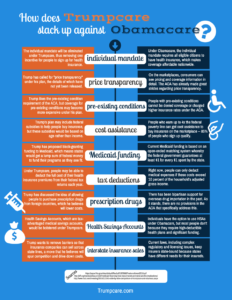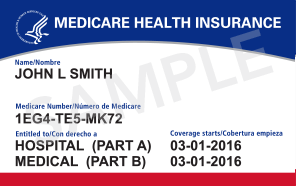
Published: Thursday, April 13, 2017 11:19 p.m. CDT • Updated: Thursday, April 13, 2017 11:19 p.m. CDT
By Trudy Lieberman, Rural Health News Service
What’s going to happen to Medicare?
That’s not an insignificant question given the political shift in Washington.
Now, with Republicans controlling the presidency and both houses of Congress, some ideas they’ve been pushing for years have a chance of passing. Those ideas would drastically change the way Medicare works for those already on it and those joining in the next few years.
Medicare is wildly popular, but that popularity doesn’t necessarily translate into understanding of a very complex program, what’s happened to it, and what may happen. Writing about Medicare for nearly 30 years and watching it evolve, I’ve seen how easily Congress has already made big changes with hardly a peep from the press or the public.
The same could happen again. In this column, I discuss a few of those possible changes gleaned from my decades of experience covering the program.
Since the election, there’s been talk of “voucherizing” or privatizing Medicare, an idea Republicans have been pushing for 20 years. Under a fully privatized arrangement, Medicare would no longer be social insurance like Social Security but more like Obamacare with everyone eventually buying their coverage from private insurance companies.
Beneficiaries would receive a sum of money, likely to be called “premium support” instead of the more dire-sounding “voucher,” to help buy their coverage. The amount of support and how well it would keep pace with medical inflation would be buried in the details Congress would hash out.
Today, the government provides the benefits for hospital and physician care for most Medicare beneficiaries, but that could change with more privatization. There already is a lot of privatization in Medicare, and it came about step-by-step – usually with both political parties in agreement and lots of buzz words like “consumer choice” to sell changes to the public.
The long steady march toward Medicare Advantage (MA) plans now used by about one-third of all beneficiaries and the prescription drug benefit are privatized insurance programs within Medicare. Seniors in MA plans give up their traditional, standardized Medicare benefits for doctor and hospital services and buy them from insurers that receive subsidies from the government.
In a totally privatized arrangement, there may be no standardized benefits, and seniors would choose from a menu of insurance company options much the way drug plans are sold today.
It’s too early to say whether Congress will push for premium support this year. Democrats have already signaled they will fight back. It’s more likely that other changes could slip through that would radically alter Medicare and force beneficiaries to pay a lot more for their care.
One of them is a change in the rules on balance billing: physicians charging seniors and disabled people on the program more than what Medicare will pay. Most doctors accept Medicare’s payment as payment in full. Those who don’t can charge patients only 15 percent more than Medicare’s payment. This limit offers protection against the high balance billing charges patients with other kinds of insurance are facing.
The nominee for Secretary of Health and Human Services Tom Price is no fan of the 15 percent rule and once proposed eliminating it, which may explain why he has gotten such a strong endorsement from the American Medical Association. The AMA has called Price a leader in developing public policy to advance patient choice and “reduce excessive regulatory burdens.” Many doctors who work with Medicare patients would like to charge as much as they want.
Congress may try to shift costs another way. The objective is to reduce what the government pays for beneficiaries’ care by making them pay more themselves. One solution is to combine the deductibles for hospital and physician care into one, and impose an out-of-pocket spending cap for beneficiaries still enrolled in traditional Medicare.
Two-thirds of beneficiaries are. Currently no such cap exists. (Seniors in MA plans do face such caps – last year as high as $6,700.)
If seniors in the traditional program also buy a Medigap plan, it’s possible they have what’s called “first dollar coverage.” That means medical expenses are covered from the beginning.
Congress has already begun to take that protection away. Beginning in 2020 insurers can no longer sell certain Medigap plans that provide for the first dollar coverage beneficiaries want. However, if you have such a policy, you can keep it.
Medicare does face some long-term funding shortfalls, and so far the acceptable solution is to require that seniors pay more rather than raise taxes for everyone or impose cost controls with teeth, which doctors, hospitals, drug companies, and other healthcare providers don’t want. I will explore all that, including negotiating pharmaceutical prices, in a future column.
Questions about Medicare,Obamacare and reimbursement? Physician Credentialing and Revalidation ? or other changes in Medicare, Commercial Insurance, and Medicaid billing, credentialing and payments? Call the Firm Services at 512-243-6844


